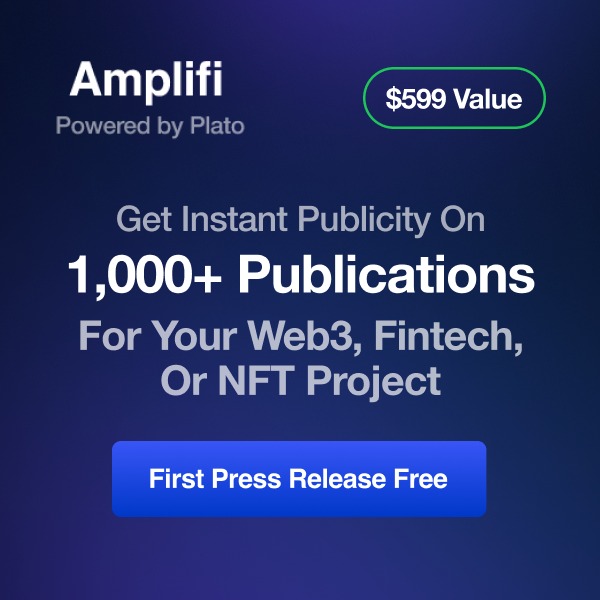Tag: estimated
What is Bull Empire?
Bull Empire is a Solana-based collection composed of 2,500 pixelized bulls, each possessing unique traits and different levels of rarity. It seems that Asian folklore is making a big splash this year and making itself known to the world through non-fungible token (NFT) collections. With impressive artworks, passionate teams, and exciting roadmaps, Asian-themed NFTs are starting […]
The post What is Bull Empire? appeared first on Asia Crypto Today.
A Trip to the Dark Site — Leak Sites Analyzed
Tezos Developers Handbook Now Available
Tezos India states that the “handbook is designed for developers with all levels of experience” and developers will learn to code in Tezos in 15 days.
The post Tezos Developers Handbook Now Available appeared first on BitPinas.
Will Rivals Take On Ethereum in the NFT Market?

According to a JPMorgan’s analyst, Solana and Tezos have the ability to take on Ethereum’s dominance in the NFT ecosystem. The NFT market is a massive pie that everyone wants a piece of. According to Nikolaos Panigirtzoglou, an analyst at JPMorgan, Ethereum (ETH) was supposedly the dominator in the first phrase. It appears that the [...]
The post Will Rivals Take On Ethereum in the NFT Market? appeared first on Blockonomi.
How GAIMIN Is Supporting Metaverse and Web 3.0 Ecosystems
 Facebook changes its name to Meta and the world suddenly becomes interested in the metaverse however the term has been around for some time, and is closely associated with Web 3.0. So what is Web 3.0, the Metaverse and how is GAIMIN involved? Web 3.0 Web 3.0 is the term used to describe the next […]
Facebook changes its name to Meta and the world suddenly becomes interested in the metaverse however the term has been around for some time, and is closely associated with Web 3.0. So what is Web 3.0, the Metaverse and how is GAIMIN involved? Web 3.0 Web 3.0 is the term used to describe the next […] UK Regulators Announce Better Regulation For Crypto Ads
The British finance ministry, in coordination with the Financial Conduct Authority (FCA), is set to introduce clear regulations for crypto ads. UK to protect investors from “misleading statements” It is estimated that about 2.3 million people in Britain now have exposure to at least one crypto asset. However, the finance ministry notes that there is […]
The post UK Regulators Announce Better Regulation For Crypto Ads appeared first on CryptoCoin.News.
Boku Estimates 22% Jump in 2021 Revenue
Russian man sentenced for illegally connecting his crypto farm to the grid to two years in prison.
Eisai’s Anti-amyloid Beta Protofibril Antibody Lecanemab Selected as the Background Therapy for the Tau Nexgen Study

People who have genetic mutations of DIAD are known to develop Alzheimer's disease (AD) and will likely develop symptoms at around the same age their affected parents did, often in their 50s, 40s or even 30s. The major AD pathologies are amyloid plaque that consists of amyloid beta (Abeta) aggregates; neurofibrillary tangles; and intraneuronal aggregates of tau, all of which are believed to spread throughout the brain.
The purpose of the Tau NexGen study is to assess the safety, tolerability, biomarker and cognitive efficacy of investigational therapies in pre-symptomatic or symptomatic participants who have an AD-causing gene mutation. In March 2021, the DIAN-TU selected E2814, which was created from a research collaboration between Eisai and University College London, as the first investigational medicine among anti-tau drugs for the Tau NexGen study. With increasing evidence from clinical studies showing that targeting amyloid can reduce biomarkers of AD, the Tau NexGen clinical trial leaders selected Eisai's investigational anti-Abeta protofibril antibody lecanemab (BAN2401) as the background anti-amyloid therapy, and the study design was amended in November 2021.
Eisai positions neurology as a key therapeutic area, and it will continue to create innovation in the development of novel medicines based on cutting-edge neurology research as it seeks to contribute further to improving the benefits of affected individuals and their families in diseases with high unmet needs, such as dementia including AD.
About Dominantly Inherited Alzheimer Network (DIAN)
The DIAN is an international research effort focused on dominantly inherited Alzheimer's disease. Dominantly Inherited Alzheimer's disease (DIAD) is a rare form of Alzheimer's disease (AD) that causes memory loss and dementia in individuals -- typically while they are in their 30s to 50s. The disease affects less than 1% of the total population of people with AD. The aim of the Dominantly Inherited Alzheimer Network Trials Unit (DIAN-TU) is to find solutions to treat or prevent this disease and, potentially, all forms of Alzheimer's. The DIAN-TU is an international public-private partnership dedicated to designing and managing interventional therapeutic trials for individuals with and at risk of DIAD.
About Tau NexGen study
The purpose of the Tau NexGen study is to assess the safety, tolerability, biomarker and cognitive efficacy of investigational therapies in people who have an AD-causing gene mutation. In the Tau NexGen study, symptomatic participants will be administered anti-amyloid beta (Abeta) protofibril antibody lecanemab for six months before being randomly assigned to also receive the anti-tau drug or a placebo. Since amyloid plaques accumulate before tau tangles in AD, this study design allows the researchers to assess whether amyloid removal clears the way for the anti-tau drug to function most effectively. Pre-symptomatic participants will be randomly assigned to receive the anti-tau drug or a placebo for a year before beginning lecanemab administration. By staggering the drugs in this way, the researchers will be able to evaluate the effects of the anti-tau drug alone before assessing the effects of the two drugs together. If the primary and secondary endpoints are positive in the analysis two years after the start of study, the study will be extended for another two years to assess whether the drug slows cognitive decline and has further effects on tau pathology.
About E2814
An investigational anti-microtubule binding region (MTBR) tau antibody, E2814 is being developed as a disease modifying agent for tauopathies including sporadic AD. Phase I clinical studies are underway. E2814 was discovered as part of the research collaboration between Eisai and University College London. E2814 is designed to prevent the spreading of tau seeds within the brains of affected individuals.
About Lecanemab (BAN2401)
Lecanemab is an investigational humanized monoclonal antibody for AD that is the result of a strategic research alliance between Eisai and BioArctic. Lecanemab selectively binds to neutralize and eliminate soluble, toxic Abeta aggregates (protofibrils) that are thought to contribute to the neurodegenerative process.
in AD. As such, lecanemab may have the potential to have an effect on disease pathology and to slow down the progression of the disease. With regard to the results from pre-specified analysis at 18 months of treatment, Study 201 demonstrated reduction of brain Abeta accumulation (P<0.0001) and slowing of disease progression measured by ADCOMS* (P<0.05) in early AD subjects. The study did not achieve its primary outcome measure** at 12 months of treatment. The Study 201 open-label extension was initiated after completion of the Core period and a Gap period off treatment (average of 24 months) to evaluate safety and efficacy, and is underway.
Eisai obtained the global rights to study, develop, manufacture and market lecanemab for the treatment of AD pursuant to an agreement concluded with BioArctic in December 2007. In March 2014, Eisai and Biogen entered into a joint development and commercialization agreement for lecanemab and the parties amended that agreement in October 2017. Currently, lecanemab is being studied in a pivotal Phase III clinical study in symptomatic early AD (Clarity AD), following the outcome of the Phase II clinical study ( Study 201). In July 2020 the Phase III clinical study (AHEAD 3-45) for individuals with preclinical AD, meaning they are clinically normal and have intermediate or elevated levels of amyloid in their brains, was initiated. AHEAD 3-45 is conducted as a public-private partnership between the Alzheimer's Clinical Trial Consortium that provides the infrastructure for academic clinical trials in AD and related dementias in the U.S., funded by the National Institute on Aging, part of the National Institutes of Health, and Eisai.
In September 2021, a rolling submission to the FDA of a Biologics License Application (BLA) for the treatment of early AD under the accelerated approval pathway was initiated. Lecanemab was granted Breakthrough Therapy designation in June 2021, a U.S. Food and Drug Administration (FDA) program intended to expedite the development and review of medicines for serious or life-threatening conditions.
* Developed by Eisai, ADCOMS (AD Composite Score) combines items from the ADAS-Cog (Alzheimer's Disease Assessment Scale-cognitive subscale), CDR (Clinical Dementia Rating) and the MMSE (Mini- Mental State Examination) scales to enable a sensitive detection of changes in clinical functions of early AD symptoms and changes in memory.
** An 80% or higher estimated probability of demonstrating 25% or greater slowing in clinical decline at 12 months treatment measured by ADCOMS from baseline compared to placebo
Media Inquiries:
Public Relations Department, Eisai Co., Ltd.
+81-(0)3-3817-5120
Eisai Inc (U.S.) Libby Holman 201-753-1945
[email protected]
Investor Contact:
Eisai Co., Ltd.
Investor Relations Department
TEL: +81-(0)70-8688-9685
Copyright 2022 JCN Newswire. All rights reserved. www.jcnnewswire.comE isai Co., Ltd. announced today that the Dominantly Inherited Alzheimer Network Trials Unit (DIAN-TU), led by Washington University School of Medicine in St. Louis, has enrolled the first subject in the phase II/III study (Tau NexGen study).
Sonde Health Partners with GN Group to Research and Develop New Vocal Biomarker Technology to Detect Mild Cognitive Impairment
BOSTON–(BUSINESS WIRE)–#MCI—Sonde Health, a leading enterprise vocal biomarker company, and GN Group, a global leader in intelligent audio solutions, have signed a multi-year strategic partnership to research and develop commercial vocal biomarkers for Mild Cognitive Impairment. The research will serve as the backbone for new voice-based tools to help at-risk individuals gain timely and accurate […]
The post Sonde Health Partners with GN Group to Research and Develop New Vocal Biomarker Technology to Detect Mild Cognitive Impairment appeared first on Fintech News.
The Worldwide Acoustic Microscopy Industry is Expected to Reach $1.47 Billion by 2026 – ResearchAndMarkets.com
DUBLIN–(BUSINESS WIRE)–The “Global Acoustic Microscopy Market (2021-2026) by Application Type, Offering Type, Industry Type and Geography, Competitive Analysis and the Impact of COVID-19 with Ansoff Analysis” report has been added to ResearchAndMarkets.com’s offering. The Global Acoustic Microscopy Market is estimated to be USD 1.15 Bn in 2021 and is expected to reach USD 1.47 Bn […]
The post The Worldwide Acoustic Microscopy Industry is Expected to Reach $1.47 Billion by 2026 – ResearchAndMarkets.com appeared first on Fintech News.




